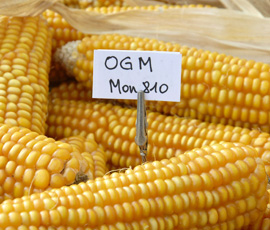March Against Monsanto planned for UK cities

Tens of thousands of activists from around the world will take part in March Against Monsanto this weekend to call for action against GM crops.
Currently, marches are being planned on six continents, in 36 countries, totalling events in more than 250 cities.
In the UK, five events are due to take place this Saturday (25 May) – in London, Bristol, Glasgow, Edinburgh and the Isle of Man. A march is also being held in Cork, Ireland.
The global day of action is targeting Monsanto, the US multinational biotech company, citing concerns about food safety, political favouritism and environmental effects.
Organisers have set up a Facebook page which has nearly 110,000 “likes” and is averaging more than 40,000 visitors a day.
Tami Monroe Canal, lead organiser and creator of the Facebook page, said she was inspired to start the movement to protect her two daughters.
“I feel Monsanto threatens their generation’s health, fertility and longevity. I couldn’t sit by idly, waiting for someone else to do something,” she added.
Emma Hockridge, head of policy at the Soil Association, said she was worried about the effect that dominant global biotech companies, such as Monsanto, could have on British farmers in terms of promoting GM and limiting their seed choices.
“In the USA there are three major companies in the GM seed market, including Monsanto, and we are worried about this,” she added.
“We have seen the effects on US farmers in terms of having less choice about which seeds they plant and the link up to chemical and fertiliser companies. Smaller seed companies have been pushed out.
“We want to see as much choice for British farmers as possible.”
In response, Mark Buckingham, spokesman for Monsanto UK, insisted that most of its customers were “very happy” to work with the company and appreciated its drive to improve technology and innovation in agriculture.
He said: “We operate in a very competitive market and our customers are, in the main, very appreciative of that choice and improvement in products this is offering them.
“These voices of protest are not customers. They are missing the need for agriculture to be more productive and sustainable. We don’t think that can be achieved without innovation in new technology.”
He added: “It’s not just about GM, it’s about a range of innovations, such as IT technology for precision agriculture, soil testing as well as seeds and agronomy.
“Innovation is increasing across the industry from small companies through to larger corporations, such as Monsanto. This idea that only a few large companies are growing at the expense of the broader industry is not a version of events going on in the marketplace that we recognise – it’s a misrepresentation.”

